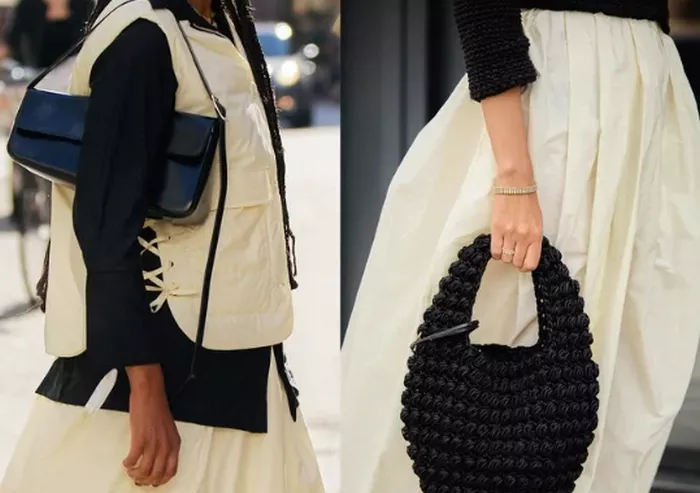President Trump’s trade war, initiated just two months ago, has dramatically altered the global economy and U.S. foreign relations. Central to Trump’s campaign, the newly implemented tariffs require countries like Mexico, Canada, and China to pay between 10% and 145% on goods imported into the United States.
A common misconception is that these tariffs are paid by the countries involved, but in reality, they are directly billed to the companies selling the products. With Trump’s executive order on May 2, affordable brands shipping from China to the U.S. now face new penalties and will likely have to increase their prices.
Prior to the executive order, countries like China had benefited from the “de minimis exemption,” a provision created in 1938 to ease trade by removing duties on low-value goods (worth $800 or less). This meant that international brands could ship goods to the U.S. without being subject to tariffs. However, President Trump argued that the loophole facilitated deceptive shipping practices, allowing illicit substances to enter the U.S. He stated that closing this loophole was vital to combating the influx of synthetic opioids into the country.
Experts predict that eliminating this exemption will lead to higher costs and potential shipping delays, as U.S. Customs and Border Protection now has to inspect millions more packages.
Though smaller, independent, and women-led brands are most affected by these changes, no company that imports from China is immune. Below, we explore how six high-street fashion brands are adapting to the rising costs due to the tariffs.
Shein
The e-commerce giant Shein, founded in China and headquartered in Singapore, announced on April 25 that it would raise its prices to offset the tariff increases. In a statement, the brand clarified: “Our commitment hasn’t changed: great style, made accessible to all. Some products may be priced differently than before, but the majority of our collections remain as affordable as ever.”
Amazon
On April 29, Punchbowl News reported that Amazon intended to disclose tariff transparency on some of its products, showing “how much of an item’s cost is derived from tariffs” next to its listed price. However, CNN Business reported the same day that President Trump had a conversation with Amazon’s founder Jeff Bezos regarding these claims. Trump seemed pleased with the call, noting that Bezos had “solved the problem very quickly.”
Following this, an Amazon spokesperson confirmed that the company had no plans to display tariff price comparisons on the main Amazon site or its Haul website, which sells products for $20 or less.
Temu
Temu, an e-commerce giant owned by a Chinese holding company and based in Boston, mirrored Shein’s statement on April 25, saying that rising global trade costs would lead to price adjustments starting April 25, 2025.
However, on May 5, CBS News reported that Temu had shifted its business model by halting shipments of Chinese-made goods to the U.S. The brand is now focusing on recruiting local U.S. sellers and fulfilling orders domestically to avoid tariff taxes. It has also introduced a “Local Warehouse” label, indicating items shipped within the U.S. will incur no import charges or extra fees, thus limiting the number of products available to U.S. consumers.
Zara
Zara, a subsidiary of the Spanish company Industria de Diseno Textil SA (Inditex), has yet to comment on the impact of tariff hikes. In Inditex’s annual press conference, Zara CEO Garcia Maceiras expressed minimal concern over the tariffs, noting that the Americas accounted for a smaller portion of global sales (18.6% in 2024), with sales in Spain and the rest of Europe growing significantly.
Maceiras highlighted that Inditex’s extensive supply network across 50 countries would help Zara navigate the new tariff landscape while keeping prices stable.
AliExpress
AliExpress, owned by the Chinese conglomerate Alibaba Group, faces the clearest challenges due to the new tariffs. Despite these hurdles, Vivian Wang of The New York Times reported that Alibaba remains “concerned but undeterred.” At a recent Alibaba conference, employees reassured attendees that they would help them navigate the customs process, with the focus now shifting to supporting sellers pivoting to markets outside the U.S., such as Southeast Asia and Europe.
This shift could lead to a reduced selection of goods available in the U.S. if sellers choose to focus on regions unaffected by these tariffs.
H&M
H&M, one of the largest global clothing retailers, manufactures in China and Bangladesh—two countries directly impacted by Trump’s tariff policies. Although the U.S. is H&M’s second-largest sales market, the brand is bracing for price hikes.
H&M CEO Daniel Ever told Reuters, “We feel at the end of the day, it will come at the cost of the consumer. We are firm believers in global trade on fair and equal terms, and tariffs are not supporting global trade and global trade development.” In anticipation of the tariff impact, H&M has been shifting production to regions less affected by the tariffs, while maintaining high production standards.
In conclusion, the implementation of these tariffs is reshaping how major fashion brands operate in the U.S. market. Whether raising prices or adjusting their supply chains, brands are adapting to the new landscape, but the ultimate cost will likely fall on the consumer.
Related Topics
- Duran Duran’s John Taylor Launches Fashion Line Inspired by Music and Personal Style
- Oysho Becomes New Headline Sponsor of Cardiff Half Marathon 2025
- Yours Clothing Closes Norwich Store as City Faces Another High Street Loss

